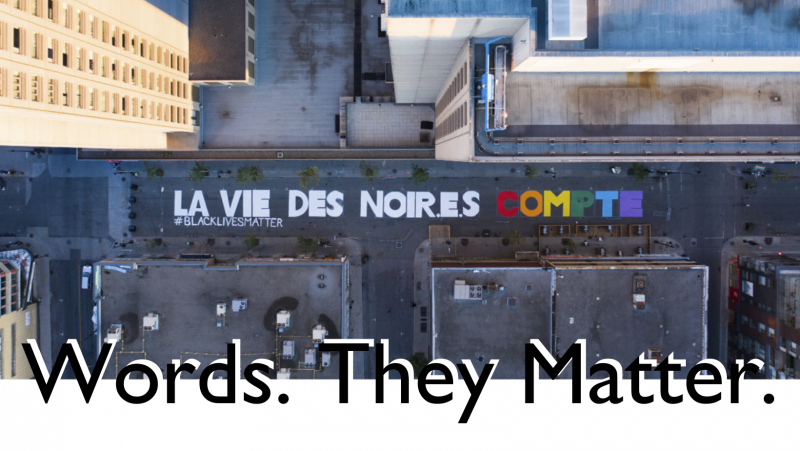One of my favourite aspects of language is its malleability. As a society, we are ever-evolving and our language evolves with us. The beauty of having a means of expression that not only describes what we see, taste, touch, hear, and feel but also what we imagine and dream into being is always somewhat of a miracle to me. The realities we can create with language are endless. But this also means that what we speak out into the world shapes and forms how we perceive the world.
The structures of power and oppression in politics, religion, economics et al, are all held up by the power of language. When decolonizing our communities, the words we use play a role in our collective liberation.
Recently, I’ve been reading about the term ‘terrorism’. As we have seen, particularly in United States media, white supremacist violence is explained away as isolated incidents of “a good person having a bad day.” I started to see a trend after several mass shootings in the US where critics would urge the media to start calling it what it is: domestic terrorism. But after the insurrection on the US Capitol earlier this year, I heard a different voice, asking us to avoid using the term ‘terrorism’. The danger in using the word terrorism to include white supremacy is that it inevitably feeds into the system that was built to oppress Black and Muslim communities through “anti-terrorism” policy and protocol. Although well-intended to bring weight to the violent actions of white supremacists, the terminology provides more ammunition to continue profiling and policing bodies of colour.
Sometimes a term is not about what it represents but about what it fails to represent. Let’s look at the term ‘womxn’. This term originated in the 1970s, but I first came across it during a resurgence in the early 2010s when women—mostly cisgender white women—were looking to distance themselves from the root word of “men”. It was also intended as an intersectional term to include those systematically left out of white feminist discourse. But in their intent to be inclusive, most people were using the word without ensuring that those spaces were indeed safe for Black, Indigenous, People of Colour, trans and non-binary communities, or without consulting the communities if this terminology resonated with them.
Similarly, the term People of Colour has been simultaneously a term that has given identity to some but left others confused and unidentified. Because this is a term that can quickly be weaponized (like womxn) where lines are drawn with assumptions often based on physical appearance or presentation, it becomes imperative that we give space to those who are most affected by these structures of power to dictate the language we use to describe them.
And no, not everyone will be on the same page. Our communities are not homogenous and will not all feel represented or erased by one term or another. I have seen arguments both for and against the use of ‘domestic terrorism’ from within the Black and Muslim communities. And womxn or People of Colour can be an empowering space for those who identify and claim it.
This is a call to listen boldly to perspectives different from your own. It is also an invitation to be willing to sit with your discomfort and make mistakes. Because we will continue to make mistakes. It doesn’t come naturally to those of us in positions of power to consider the expense of our privilege. That’s why it takes intentional practice. I invite you to do the first exercise today: if you are speaking from a position of power, remember to ask yourself who isn’t being represented in your language.
Originally published in CPT’s Newsletter vol xxxi No. 1




